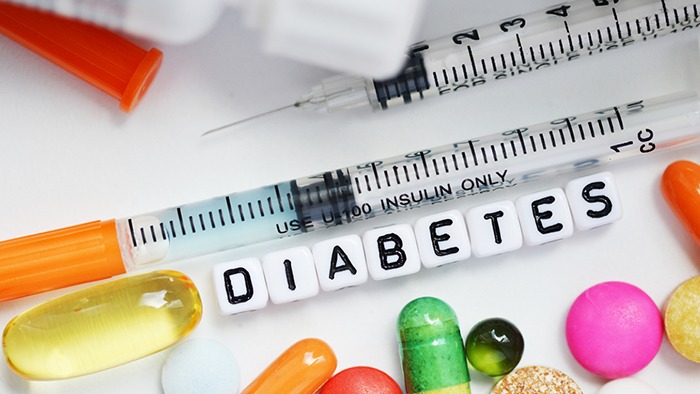Living with high blood sugar levels can be challenging, but it’s important to remember that you have the power to make meaningful changes in your life to control and reduce them. As a doctor, I understand the concerns and questions you may have about this journey, and I’m here to guide you through it. Let’s talk about some lifestyle changes you can make to help lower your blood sugar levels and improve your overall well-being.
1. Balanced Diet: Your choice of foods plays a significant role in managing blood sugar levels. Aim for a balanced diet that includes plenty of vegetables, lean proteins like chicken or tofu, and whole grains like brown rice or whole wheat bread. Try to limit your intake of sugary snacks, soda, and processed foods. These can cause rapid spikes in blood sugar levels.
2. Portion Control: It’s not just about what you eat, but how much you eat. Pay attention to portion sizes to avoid overeating. Smaller, more frequent meals can help keep your blood sugar levels stable throughout the day.
3. Choose Complex Carbs: Opt for complex carbohydrates such as oats, quinoa, and sweet potatoes instead of simple carbohydrates like white bread and sugary cereals. Complex carbs are digested more slowly, helping to prevent sudden spikes in blood sugar.
4. Regular Physical Activity: Exercise is a powerful tool for managing blood sugar levels. Aim for at least 30 minutes of moderate-intensity exercise most days of the week. Activities like walking, swimming, or cycling can be enjoyable ways to stay active and help control your blood sugar.
5. Weight Management: If you’re overweight, shedding a few pounds can make a significant difference in your blood sugar control. Losing weight through a combination of a balanced diet and regular exercise can improve your insulin sensitivity.
6. Stress Reduction: Chronic stress can raise blood sugar levels. Try stress-reduction techniques such as deep breathing exercises, meditation, or yoga to help keep stress in check.
7. Regular Monitoring: Keep a close eye on your blood sugar levels by regularly checking them as advised by your healthcare provider. This helps you understand how your lifestyle changes are affecting your body and allows for timely adjustments.
8. Medications as Prescribed: If your doctor prescribes medication to manage your blood sugar, be sure to take it as directed. These medications are designed to work alongside lifestyle changes to help control your levels.
9. Hydration: Drinking plenty of water is essential for overall health. Water helps your body process glucose efficiently, so aim to stay well-hydrated throughout the day.
10. Sleep Well: Good-quality sleep is vital for managing blood sugar levels. Aim for 7-9 hours of restful sleep each night to help your body regulate insulin and reduce stress.
Now I want to guide you through some of the best foods that can help reduce your blood sugar levels and keep you on the path to good health.
1. Leafy Greens: Leafy greens like spinach, kale, and Swiss chard are rich in fiber and low in carbohydrates. They help slow down the absorption of sugar in your bloodstream and provide essential nutrients to support your body’s functions.
2. Berries: Berries, such as strawberries, blueberries, and raspberries, are packed with antioxidants, fiber, and vitamins. They can satisfy your sweet cravings without causing rapid spikes in blood sugar.
3. Whole Grains: Whole grains like oats, quinoa, and brown rice are excellent choices because they are high in fiber and nutrients. They release sugar into your bloodstream more slowly, helping to keep your blood sugar levels stable.
4. Lean Proteins: Foods like chicken, turkey, fish, and tofu are rich in protein and low in carbs. Protein helps you feel full and satisfied, reducing the temptation to snack on sugary treats.
5. Legumes: Beans, lentils, and chickpeas are not only a great source of plant-based protein but also provide a healthy dose of fiber. They can help regulate blood sugar levels and improve insulin sensitivity.
6. Nuts: Nuts, such as almonds, walnuts, and pistachios, are full of healthy fats, fiber, and protein. They can be a satisfying snack that doesn’t lead to rapid blood sugar spikes.
7. Cinnamon: Adding a dash of cinnamon to your meals or beverages can have a positive impact on blood sugar levels. It may improve insulin sensitivity and lower blood sugar after meals.
8. Garlic and Onions: These flavorful ingredients can add depth to your dishes while also helping to lower blood sugar levels. They contain compounds that may improve insulin function.
9. Vinegar: Studies suggest that vinegar, particularly apple cider vinegar, may help reduce blood sugar levels after meals. You can dilute it in water and have it before or with meals.
10. Fatty Fish: Fatty fish like salmon, mackerel, and sardines are rich in omega-3 fatty acids, which can help improve insulin sensitivity and reduce inflammation in the body.
11. Greek Yogurt: Greek yogurt is a good source of protein and contains probiotics that may help with blood sugar control. Choose plain, unsweetened varieties to avoid added sugars.
12. Avocado: Avocados are a great source of healthy fats and fiber. They can help control blood sugar levels and promote a feeling of fullness.
Remember that moderation is key when it comes to these foods. While they can be beneficial for managing blood sugar, portion control is important. If you have prediabetes or diabetes, you can consult our doctors at MedChunk. We’re here to help improve your quality of life

